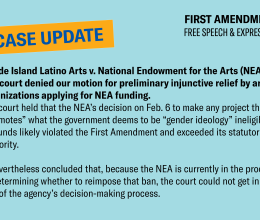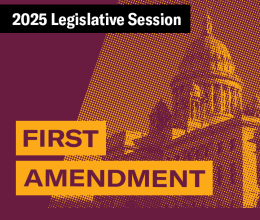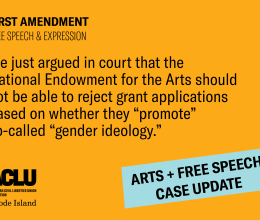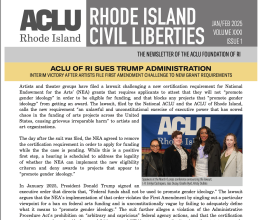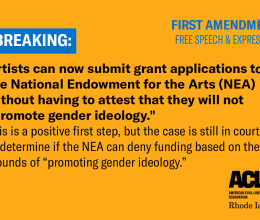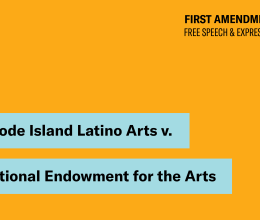In a case that raised potentially far-reaching free speech issues for state residents, the ACLU hailed the dismissal today of criminal charges against Little Compton resident William Bullivant at a hearing before R.I. Superior Court Judge Melanie Wilk Thunberg. ACLU volunteer attorneys Charles Levesque and Nicholas Trott Long represented Bullivant at the hearing.
In district court earlier this year, Mr. Bullivant was convicted of “obstructing a police officer in the execution of his or her duties.” The allegations surrounding the charge were that he made a phone call from a local restaurant, Crowther’s, to an employee at another establishment, Sneekers, to advise that police were checking for under-aged drinking by bar patrons. At the time Bullivant allegedly made the phone call, an undercover police officer was in Crowther’s with a teenage “sting” trying to be served alcohol without presenting ID. The officer claimed that he and the teenager had planned to visit the bar that Bullivant called but that their “cover” was blown by his actions, leading to the obstruction charge. Because of the significant free speech issues raised by the conviction, the ACLU agreed to represent him on appeal.
In briefs filed in Superior Court, the ACLU argued that “no court elsewhere has ever held that the mere sharing of information, lawfully gained, can constitute a crime. The most that the state can prove is that the Defendant [called] a bartender to make sure that she obeyed the law. By the State’s reasoning, a radio station that broadcasts the fact that extra traffic patrols are being assigned to Interstate 95 on a given morning” violates the law. Quoting from a recent U.S. Supreme Court ruling, the brief said “it would be quite remarkable to hold that speech by a law-abiding possessor of information can be suppressed in order to deter conduct by a non-law-abiding third party.”
In dismissing the charges against Bullivant today, Judge Thunberg did not reach the First Amendment issues. Instead, she concluded that his alleged conduct simply did not constitute “obstruction” for purposes of the statute.
Although it was not raised in the case, the ACLU noted that the police officer who charged Bullivant with the offense, Lt. Sidney Wordell, is no stranger to Bullivant. In 1998, Wordell was reprimanded after placing on the Town Commons a crude image of Bullivant with a bulls-eye in the middle. At the time, Bullivant had been a vocal critic of the design of a proposed police/fire complex in the town.
ACLU volunteer attorney Levesque said today: “I am very pleased with the dismissal of the charges. This case involved kind of a Paul Revere syndrome. We don’t want the police arresting everyone who merely warns of potential danger. For the time being, it is still a free country.”


